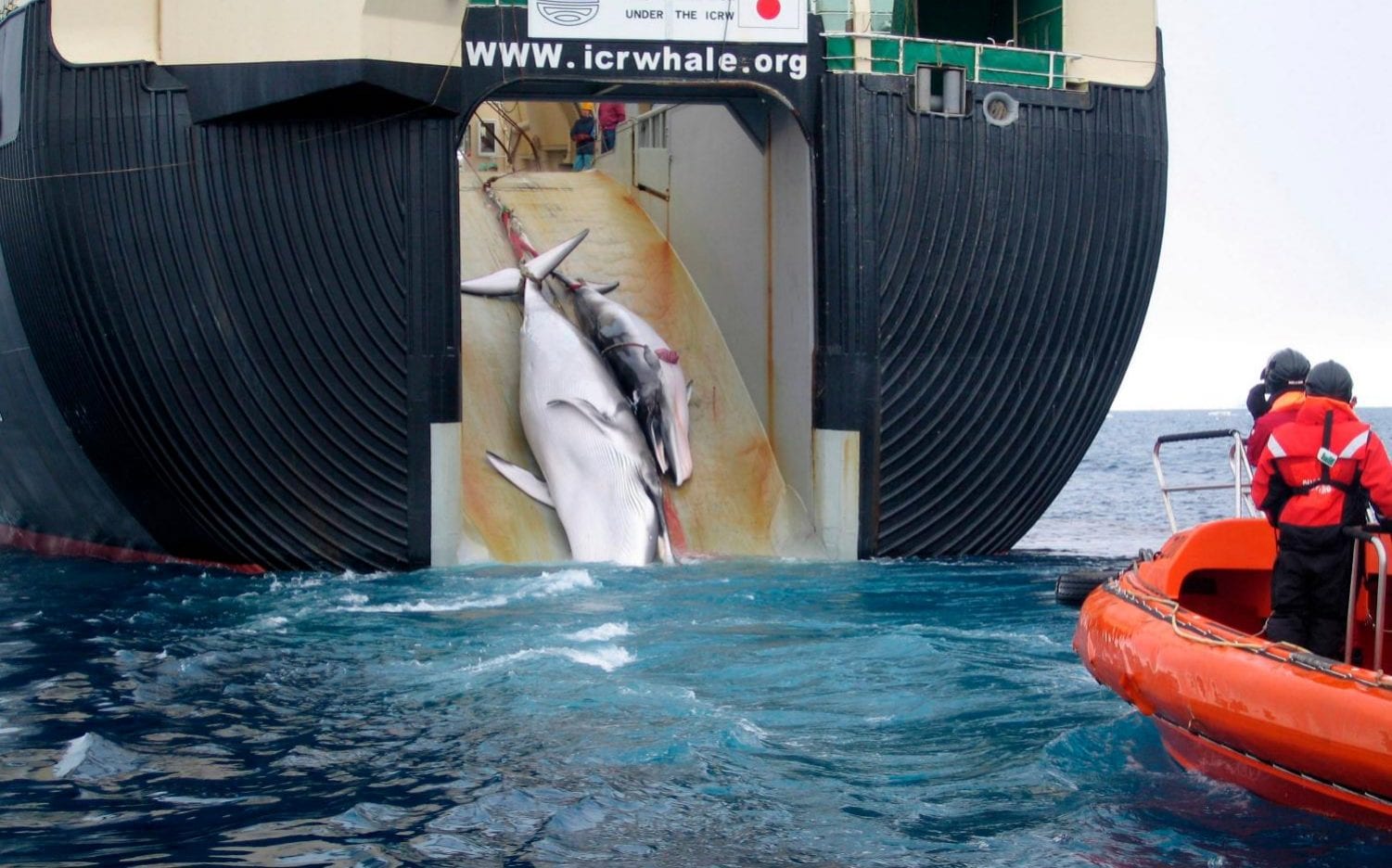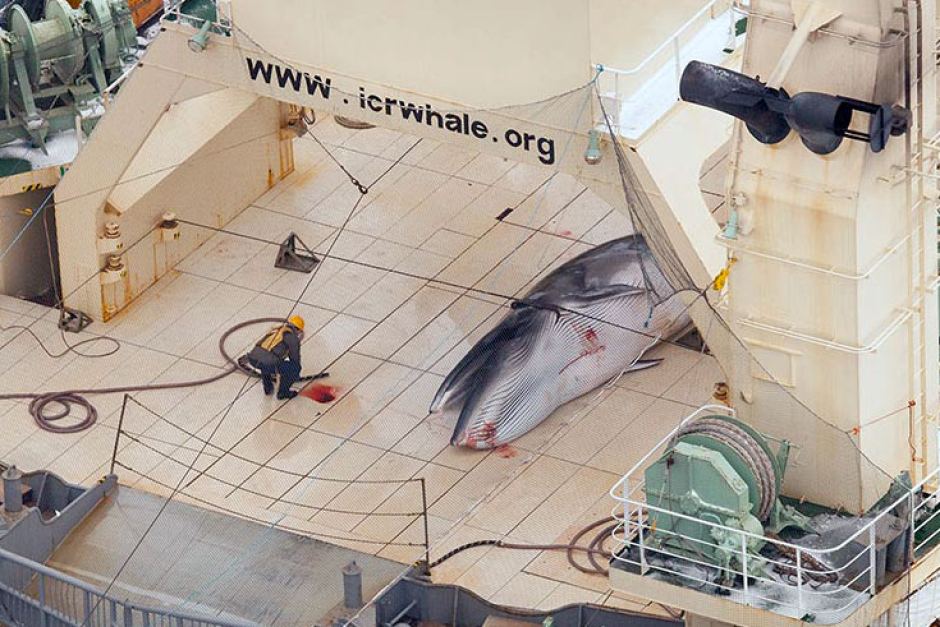Japanese whalers kill 223 whales completing their first hunt in over three decades.
Japanese whaling vessels returned home to the southwest of the country on Friday after completing their first whale hunt in 31 years. The whaling ships almost made their quota over the three month hunting season off the Japanese coast.
Japan's whaling fleet e.g. the Nisshin Maru and her two support ships; the Yushin Maru and No. 3 Yushin Maru resumed commercial whaling on July 1st 2019, after Japan left the International Whaling Commission. Japan conducted whaling under the guise of "scientific research" for 31 years in the Antarctic and the Northwest Pacific and conservationists how these were a "cover-up" for commercial whale hunting, banned by the IWC. Japan has agreed to hunt whales within their Exclusive Economic Zone, but managed to nearly fill their quota, having killed 223 out of 232 whales, including 187 Byrde's whales, 25 sei whales, and 11 minke whales ( Balaenoptera acutorostrata
). In total an estimated 1,430 tons of frozen whale meat from the catch, down 670 tons from last years commercial hunt in Antarctica.
Smaller scale operators incorporating five boats commercially hunting whales in Japan filled their seasonal quota of 33 minke whales.The meat is brought to a local fish market and sold for 15,000 yen (127.50 euro) per kilogram. Japan intends to scale their commercial whaling operations and are seeking a 5.1 billion yen (43 million euro) budget for fiscal 2020 to support commercial whaling.
Whale meat has taken a downturn in consumption over the years, and what was once an affordable source of protein after World War II, was quickly replaced by better meats once they became available. According to Japan's Fishery Agency the annual consumption of whale meat today is down 4,000 to 5,000 tons.
Meat consumption in Japan varies between social trends and demographics, the former usually being more to do with health. A great deal of change has happened in Japan since the 1960's, and it has grown into one of the world's most vibrant economies, creating the onset of the availability of different meats, mainly chicken, beef and pork. According to a recent survey by NHK, meat is preferred by the younger generations than a more traditional seafood diet, with fish consumption becoming more frequent with age. Almost one quarter of Japanese people over the age of 70, eat fish daily. In effect, the Japanese diet has shifted more towards meat in recent years, with average person consuming 5.2 kg of meat in 1960, which increased to 28.5 kg in 1995 and to 31.6 kg by 2016. In comparison, the average Japanese person consumed 27.8kg of fish in 1960, which increased to 40.1 in 2001 but has since decreased to 24.6 kg in 2016.
The average American person was estimated to consume three times of red meat of a Japanese person in 2016, at about 100 kg of red meat and poultry. Vegetarianism is a lifestyle choice that is also gaining momentum in Japan in recent years. In either sense, the return to commercial whaling can have political ramifications that go unbeknownst to the public and extrinsic concerns in regard to environmental and animal welfare don't seem to have much of an effect for the preference of consuming whale meat. Even the fact that some of the species the whalers hunt are endangered goes unremarked in the media. If Japanese do not consume whale meat it comes down to more about the taste and the fact they would rather consume other meats. It is of concern that whale is viewed as a meat rather than a seafood among older generations, as it is likely reflective of the views of the younger generations also.
Whales, of course are mammals, which means their flesh is more like red meat than fish. It is hoped that whale consumption will amount to more than nothing than a "niche" food market, such as horse meat or wild game. Given that whale meat per kg is more expensive than horse and beef, it is likely a trend that won't ever become more than "a regional, expensive curiosity food", despite the push by some commercial stakeholders that whale meat is part of Japanese culture and tradition.
- © Ocean Research & Conservation Ireland (ORCireland) and
www.orcireland.ie
, est. 2017. Unauthorized use and/or duplication of this material without express and written permission from this site’s author and/or owner is strictly prohibited. Excerpts and links may be used, provided that full and clear credit is given to Ocean Research & Conservation Ireland and
www.orcireland.ie
with appropriate and specific direction to the original content.
SHARE THIS ARTICLE















